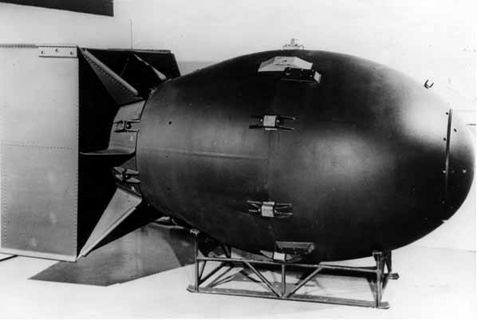
Nuclear Power and Nuclear Warfare

Introduction:Nuclear power and nuclear warfare are two interconnected aspects of the nuclear domain that have had a profound impact on the course of human history. While nuclear power offers the potential for clean and abundant energy, the destructive power of nuclear weapons raises significant concerns. In this blog post, we will delve into the relationship between nuclear power and nuclear warfare, exploring their origins, development, and the ongoing debates surrounding them. By understanding the connections and implications of these two subjects, we can gain insight into the complexities and challenges associated with harnessing nuclear technology.
The Dawn of Nuclear Warfare:The development of nuclear weapons during World War II marked a turning point in the history of warfare. The Manhattan Project, a top-secret scientific research program, led to the successful creation of the first atomic bomb. The bombings of Hiroshima and Nagasaki in 1945 demonstrated the devastating power of these weapons and resulted in a paradigm shift in global security.
Historical Context:The development and use of atomic weapons have been indelibly marked by pivotal moments in history. The first and only instances of atomic warfare occurred during World War II when the United States dropped atomic bombs on the Japanese cities of Hiroshima and Nagasaki in 1945. The devastating impacts of these bombings resulted in the immediate deaths of tens of thousands of people and had long-lasting effects on survivors, including radiation sickness and increased cancer rates.
Global Implications:Deterrence and Arms Races: The existence of atomic weapons has given rise to the concept of deterrence, where nations possess nuclear capabilities to deter potential adversaries. However, this has also led to arms races and an ongoing pursuit of nuclear weapons by several countries. The proliferation of atomic weapons raises concerns about their potential use or falling into the wrong hands.
1)Humanitarian and Environmental Concerns: Atomic war poses severe humanitarian and environmental risks. The immediate and long-term impacts of atomic weapons extend far beyond the immediate blast zone. Radiation exposure, widespread destruction, and environmental contamination can have long-lasting consequences for human health, ecosystems, and food supplies.
2)Geopolitical Instability: The possession of atomic weapons can significantly impact geopolitical dynamics and international relations. Nations with nuclear capabilities often gain strategic advantages and exert influence on the global stage. However, the potential for accidental or intentional use of these weapons creates an atmosphere of instability and heightens the risks of conflicts escalating into full-scale atomic war.
3)Arms Control and Non-Proliferation Efforts: International efforts to control and limit spread of atomic weapons have been ongoing for decades. Treaties such as the Treaty on the Non-Proliferation of Nuclear Weapons (NPT) and the Comprehensive Nuclear-Test-Ban Treaty (CTBT) aim to prevent the further proliferation of nuclear weapons, encourage disarmament, and promote peaceful uses of nuclear technology.
4)Human Security and Ethical Considerations: The existence of atomic weapons raises ethical dilemmas regarding the potential loss of innocent lives and the scale of destruction they can cause. The pursuit of peace, human security, and the protection of civilian populations become paramount in discussions surrounding atomic war.
5)Clean Energy: Atomic power is often hailed as a form of clean energy because it does not produce greenhouse gas emissions during electricity generation. This makes it an attractive alternative to fossil fuels, which contribute significantly to climate change.
6)High Energy Density: Atomic power has an incredibly high energy density, meaning that a small amount of nuclear fuel can produce a substantial amount of electricity. This makes it a highly efficient source of energy.

Risks and Challenges:
1)Radioactive Waste: One of the biggest challenges associated with atomic power is the disposal of radioactive waste generated during the fission process. Proper management and long-term storage of this waste are crucial to prevent any potential environmental or health hazards.
2)Safety Concerns: Nuclear accidents, although rare, have had severe consequences in the past. Events like the Chernobyl and Fukushima disasters highlight the importance of stringent safety measures and protocols in nuclear power plant design and operation.
3)Proliferation and Security: The use of nuclear technology for power generation raises concerns about the potential misuse of materials or knowledge for developing nuclear weapons. Strict international regulations and safeguards are in place to prevent nuclear proliferation and ensure the security of atomic power facilities.
4)High Initial Costs: Building and maintaining nuclear power plants require significant investments due to the complex infrastructure, safety systems, and decommissioning costs associated with them. However, advancements in reactor designs and construction techniques are aimed at reducing these costs over time.
Important Considerations:
1)Nuclear Power and Weapons: A Dual-Use Dilemma One of the central concerns surrounding nuclear power is the potential for the misuse of nuclear technology for military purposes. The dual-use nature of nuclear reactors means that the same technology used to generate electricity can be repurposed to develop nuclear weapons. This duality poses significant challenges in international efforts to prevent the proliferation of nuclear weapons.
To read more, click on link given below
https://globa71.blogspot.com/2023/07/nuclear-power-and-nuclear-warfare.html
0 件のコメント
この投稿にコメントしよう!
この投稿にはまだコメントがありません。
ぜひあなたの声を聞かせてください。
